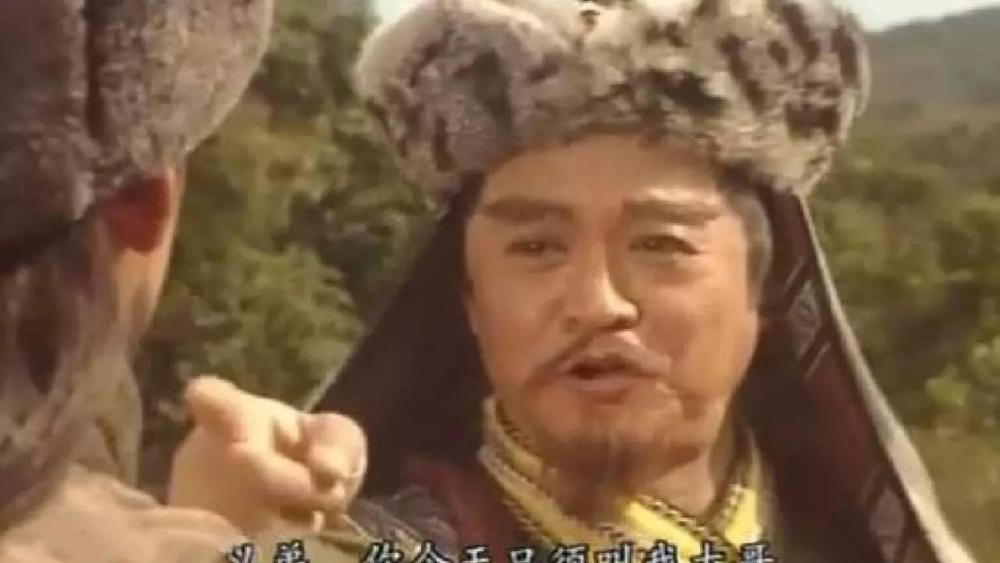Anyone who has seen Jin Yong's martial arts drama "Tianlong Babu" will have some impressions of the liao emperor who is poor and militaristic, and the emperor of the liao state is called Yelü Hongji. In the Eight Parts of the Heavenly Dragon, Yelü Hongji is a tyrannical emperor who wantonly slaughters the Han people, oppresses the Jurchen tribe, and insists on invading the Song dynasty in the south. In the end, Yelü Hongji was coerced by Xiao Feng and forced to promise to not allow the Liao army to cross the Song and Liao borders for the rest of his life. However, Xiao Feng remembered that he was a Khitan man, but he threatened the Liao Emperor and had become a great sinner of the Khitan and no longer had the face to stand between heaven and earth, so he chose to kill himself.

The historical Yelü Hongji not only did not exhaust military force, but also advocated Sinology, believed in Buddhism, and loved peace. Yelü Hongji was the longest-reigning emperor of the Liao Dynasty, lasting forty-six years. Although the Liao state invaded the land of Yanyun Sixteen Prefectures, since the alliance of the Song and Liaoyuan, the Liao state has basically stopped its ambitions to expand to the Central Plains. Moreover, liao was much more evolved and easier to get along with than the later Jin and Mongolian civilizations, so Song Liao could maintain peace for more than a hundred years.
The Liao state also imitated the Tang system in culture, and many Liao emperors had high Han cultural attainments. For example, Liao shengzong Yelü Longxu was ten years old and could write more than 500 poems in his lifetime; Liaoxingzong Yelüzong's true work poems, Shan Danqing, tasted the painted geese and eagles sent to the Song Dynasty, it is rumored to be exquisitely embellished, as if realistic, Song Renzong also made a flying white book to answer it, which was passed down for a while as a beautiful talk.
Yelü Hongji was more Sinicized, proficient in music, good at calligraphy and painting, fond of poetry, and often composed poems for foreign relatives and ministers. Moreover, the emperors of the middle and late Liao kingdoms all advocated Taoism and Buddhism, and they had long since lost the rough style of the beginning of the founding of the country, and this was especially due to the Liao Daoist Sect Yelü Hongji.
Yelü Hongji greatly admired the culture of the Central Plains, archaeologists and in the 1930s, in the former site of the Kaitai Temple in Nanjing (now Beijing), found a three-foot-eight-inch silver Buddha, which has an inscription on the back: Silver Thousand two, cast two Buddha statues, mighty and solemn, benevolent Dharma, Bao I Liaoguo, eternal enjoyment, Kaitai Temple cast silver Buddha, wish future generations of China (Central Plains), Yelü Hongji, Piety heart silver cast. In October of the twenty-third year of Chongxi (1054).
There were Song Dynasty soldiers who rode across the border and shot at the Liao people, and Yelü Hongji wrote to the Song Shenzong Dao: Stealing from the tired dynasty, since the good talks, mutual observance of the rules, wu Dun Long Deed, although the territory is divided into two countries, ke is deeper than difficult to know, and the Yinuo family, thinking together in Youyong. On the verge of death, Yelü Hongji also warned his grandson Yelü Yanxi (Emperor Tianzuo): The Southern Dynasty (Song Dynasty) has been good for a long time, and ru is strong, and it is necessary not to cause trouble.
References: History of Liao, etc.;